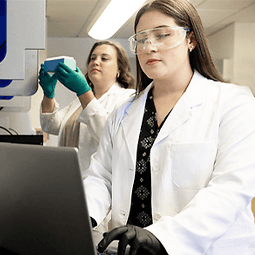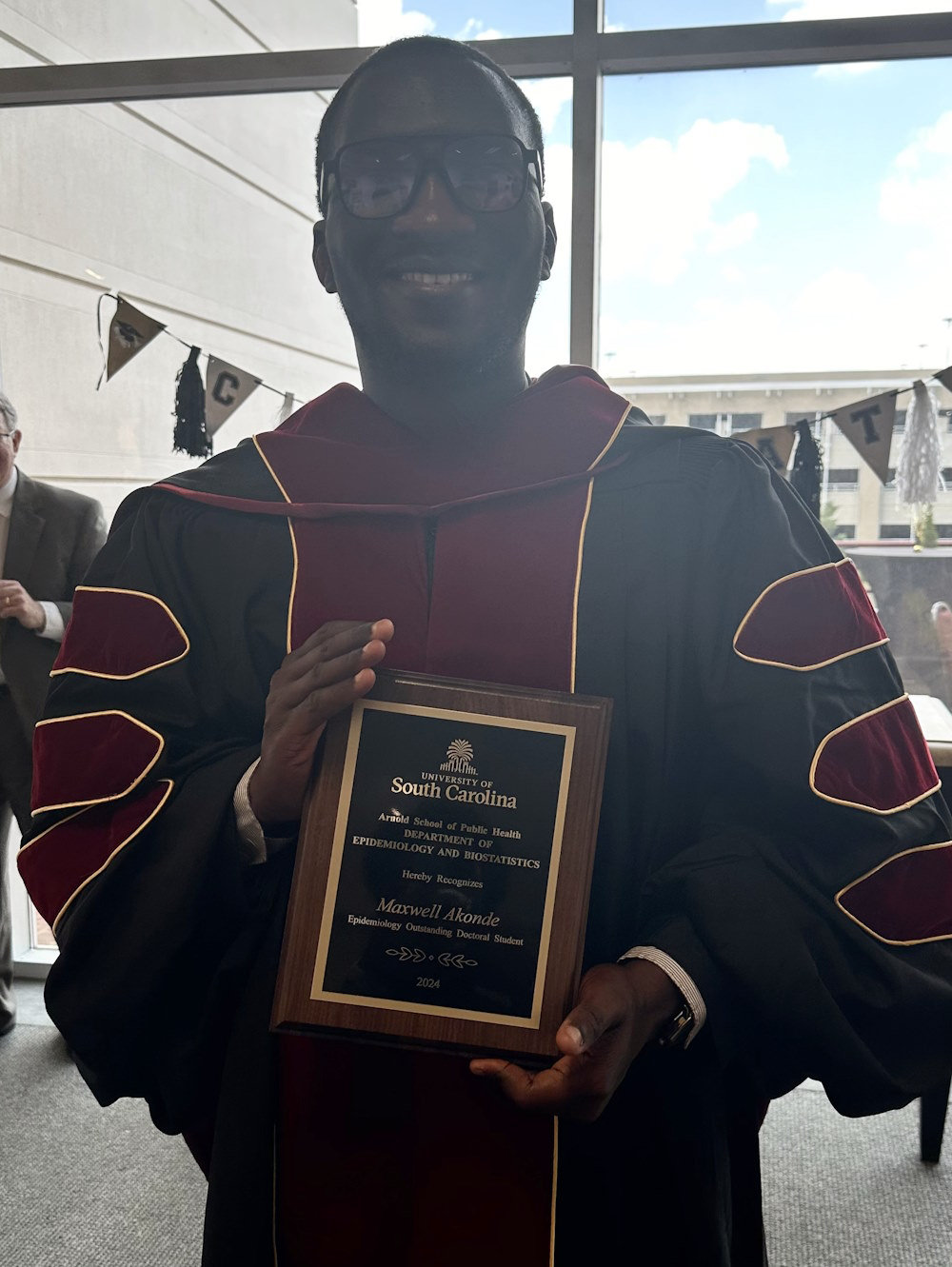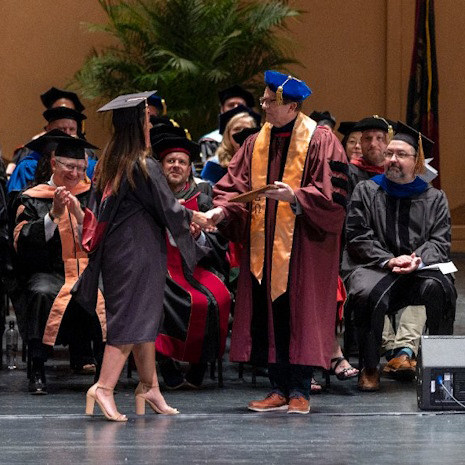
Find Out More
Epidemiologists design and conduct investigations aimed at improving the health of groups of people by combining knowledge from the social sciences, medicine, biology, the environment, and statistics.
December 9, 2024 | Erin Bluvas, bluvase@sc.edu
Maxwell Akonde did not have plans to study epidemiology until he began working with the American Society for Clinical Pathology. The medical laboratory scientist was collaborating with the largest professional organization for pathologists and laboratory professionals to establish cancer diagnostic centers in Ghana.
“I noticed there was a huge gap, not just with the diagnostic system, but with information on the distribution and determinants of basic health-related conditions in my homeland,” Akonde says. “It was then I decided to study epidemiology, and I chose USC due to the integrated design of the program, where epidemiologists and biostatisticians interact to build strong concepts capable of being the next game-changers in providing better public health systems.”
Bolstering Ghanaian health systems is especially critical to protecting its citizens from rampant epidemics, he says. Emerging and re-emerging infectious diseases such as cholera, typhoid and malaria are endemic to all sub-Saharan African countries, and Akonde is committed to helping establish the prevention and mitigation strategies necessary to control these outbreaks.
He’s also passionate about improving health outcomes related to non-communicable conditions, such as cancer – the focus of his studies in the Ph.D. in Epidemiology program. Akonde found a mentor in internationally renowned cancer epidemiologist and epidemiology and biostatistics department chair Anthony Alberg.

“Dr. Alberg is an incredible person who has made numerous contributions to the advancement of cancer and tobacco research,” he says. “I had already been following his work before making the decision to come to USC, and I must say he is an inspiration.”
In addition to conducting research with Alberg as a National Institutes of Cancer-funded graduate research trainee (publishing two dozen papers with others in preparation), the Grace Jordan McFadden Professors Scholar became involved in USC’s Graduate Student Association, serving as vice president and president. He also organized the Arnold School’s International Student and Global Health Forum, completed training in diversity and teaching, engaged in policy advocacy, mentored other students, and served in several editing and other professional roles.
With funding from the Office of the Vice President for Research’s SPARC Graduate Research Grant Program, Akonde studied multiple biomarker algorithms for the early detection of ovarian cancer for his dissertation project. He graduates this month and is the recipient of the Graduate International Student Achievement Award, Outstanding Epidemiology Doctoral Student Award, and Arnold School of Public Health Excellence in Contributions to Diversity, Equity and Inclusion in Research and Practice Award.
Throughout his time at USC, Akonde has remained involved in Ghanaian collaborations. This includes the rural community health outreach supported by Project Okurase, a nonprofit organization based in Charleston, which inspired him to seek additional education to help this little village and beyond. To round out his training in the U.S., Akonde will complete a postdoctoral research fellowship at the National Cancer Institute.
“Epidemiology/public health is one of the best careers to be in,” Akonde says. “This is especially true now as we continue to deal with a growing problem of non-communicable diseases, emerging and re-emerging pathogens associated with climate change, and the global threats of epidemics and disease outbreaks.”
“Maxwell Akonde has all the attributes for a successful career as an epidemiologist,” says Alberg, “His represents a special combination of excellent research acumen, strong work ethic, determination, and leadership skills. Perhaps most importantly, he is a stellar person who is committed to the betterment of humankind.”

Epidemiologists design and conduct investigations aimed at improving the health of groups of people by combining knowledge from the social sciences, medicine, biology, the environment, and statistics.

The Arnold School is proud of our 2024 graduates, who will go on to change the world locally and globally. Learn about some of the other outstanding individuals who completed one of our 34 programs this year.